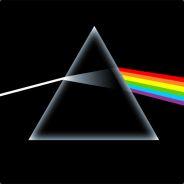What was the first computer?
What was the first computer and what did it do?
Edit:
What was the first non-biological, electrical computer and what did it do?
[Edited by - simon10k on April 20, 2006 9:52:22 AM]
Colossus, a British computer built for deciphering codes during World War 2, is commonly regarded as the first electronic programmable computer.
I dont know who can say for certain, it all depends on what your definition of a computer is.
If its a simple device which reads in data and then produces an appropriate output it would be the programmable loom made during the industrial revolutions which stored the patterns on punch cards, or so I believe.
If its a simple device which reads in data and then produces an appropriate output it would be the programmable loom made during the industrial revolutions which stored the patterns on punch cards, or so I believe.
Joe Caveman was sitting outside his cave one day, trying to figure out how many rocks would remain in his rock collection if he gave a few of them to his best friend Bob.
"Ugh!" thought Joe. "I'll use these pebbles sitting around here to represent rocks. So if I have one pebble for every rock in my rock collection, I can take away three to give to Bob, and I'll still have six left!"
Joe's amazing discovery of the fact that unrelated but easier to work with pebbles can be abstract mathematical representations of something else was the first step on the road to "computing". This road also involved the invention of the "abacus", another mechanical visual aid that helps with multiplication and division as well as addition and subtraction, and the "slide rule", which not only allows even more abstract mathematical operations but also incorporates a form of ROM (brownie points if you can figure out how!).
In 1834, Charles Babbage conceived of a device he called an "analytical engine", which most view as the forerunner of the modern analytical computer. Though none of his various design iterations were completed, they had features such as separate data and program "memory", conditional jumps, and instruction-based operation.
From then on, it was mainly a matter of vacuum tubes, transistors, and microprocessors, and the result is the hunk of silicon and copper you're using to read my reply today.
Cheers!
[EDIT]
As usual, I waxed eloquent and was beaten to the answer several times over. Still, isn't my version so much more fun to read? (Forget factuality here...)
"Ugh!" thought Joe. "I'll use these pebbles sitting around here to represent rocks. So if I have one pebble for every rock in my rock collection, I can take away three to give to Bob, and I'll still have six left!"
Joe's amazing discovery of the fact that unrelated but easier to work with pebbles can be abstract mathematical representations of something else was the first step on the road to "computing". This road also involved the invention of the "abacus", another mechanical visual aid that helps with multiplication and division as well as addition and subtraction, and the "slide rule", which not only allows even more abstract mathematical operations but also incorporates a form of ROM (brownie points if you can figure out how!).
In 1834, Charles Babbage conceived of a device he called an "analytical engine", which most view as the forerunner of the modern analytical computer. Though none of his various design iterations were completed, they had features such as separate data and program "memory", conditional jumps, and instruction-based operation.
From then on, it was mainly a matter of vacuum tubes, transistors, and microprocessors, and the result is the hunk of silicon and copper you're using to read my reply today.
Cheers!
[EDIT]
As usual, I waxed eloquent and was beaten to the answer several times over. Still, isn't my version so much more fun to read? (Forget factuality here...)
Quote:Original post by TDragon
Joe Caveman was sitting outside his cave one day, trying to figure out how many rocks would remain in his rock collection if he gave a few of them to his best friend Bob.
"Ugh!" thought Joe. "I'll use these pebbles sitting around here to represent rocks. So if I have one pebble for every rock in my rock collection, I can take away three to give to Bob, and I'll still have six left!"
Joe's amazing discovery of the fact that unrelated but easier to work with pebbles can be abstract mathematical representations of something else was the first step on the road to "computing". This road also involved the invention of the "abacus", another mechanical visual aid that helps with multiplication and division as well as addition and subtraction, and the "slide rule", which not only allows even more abstract mathematical operations but also incorporates a form of ROM (brownie points if you can figure out how!).
In 1834, Charles Babbage conceived of a device he called an "analytical engine", which most view as the forerunner of the modern analytical computer. Though none of his various design iterations were completed, they had features such as separate data and program "memory", conditional jumps, and instruction-based operation.
From then on, it was mainly a matter of vacuum tubes, transistors, and microprocessors, and the result is the hunk of silicon and copper you're using to read my reply today.
Cheers!
[EDIT]
As usual, I waxed eloquent and was beaten to the answer several times over. Still, isn't my version so much more fun to read? (Forget factuality here...)
No it's not, you should forego artistic replies for the standard, "First post rules!"
Quote:Original post by Dave Hunt
The ABC Computer was completed two years before the Colossus.
As an Ames, IA resident, thank you for giving props where it's due.
The CS building on the ISU campus has some nice displays RE: the ABC computer.
This topic is closed to new replies.
Advertisement
Popular Topics
Advertisement





